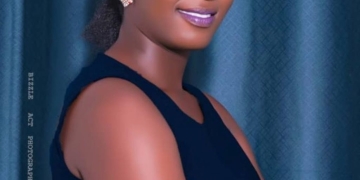
In the grand political comedy that is Uganda’s democracy, nothing delivers both satire and seriousness like the recently concluded LC1 NRM primary elections. Far from the air-conditioned boardrooms of Kampala’s political class, this was politics stripped of pretense—raw, noisy, personal, and hilariously revealing. Picture it: entire villages lining up behind candidates like schoolchildren queuing for porridge, all under the watchful eye of the opposition’s cousin. Here, your vote isn’t just a right—it’s a declaration of allegiance, visible to every chicken and charcoal seller in the parish. Yet amid the laughter and village gossip, there was something deeply philosophical unfolding. If democracy is choice, then ours demands courage, because everyone—including your ex, your landlord, and your mother-in-law—can see which line you’re in.
Some contests were decided by who last bought the LC chairperson a soda; others by unresolved grudges dating back to a stolen goat in 2003. In one memorable corner of Bukedea, a candidate blamed his loss on “solar-powered radio interference”—a phrase that deserves a PhD in political fiction. Victory was less about policy and more about proximity: the winner was usually the one with a boda boda, a booming voice, and a reputation for buying waragi during funerals. Political ideologies didn’t matter—only if you could “mobilize”, which in many cases meant rounding up idle uncles, cooking rice, and promising to call someone in State House.
But beyond the chaos was a whisper—one the opposition should take seriously. The NRM, though still deeply rooted, appeared disorganized, disconnected, and in some cases, disinterested. The legendary mobilization machine groaned like an old bus climbing Mbale’s slopes. In several areas, elections were postponed, disputed, or riddled with farcical irregularities. Candidates accused the party of favoritism. Voters accused the candidates of witchcraft. It was a mess—but a revealing one. For the opposition, this is no time for noise. It is time for notebooks. The gaps are showing. The people are watching. And most importantly, some of them are no longer clapping.
The youth, once again, hovered in the background—curious but largely uninspired. Many mocked the proceedings online or dismissed them as “auntie politics.” But in their silence lies both danger and potential. If opposition forces can organize here—not in theory, but in taproot-level community engagement—they may find a population tired of hearing about historical liberation and more eager for practical liberation: jobs, roads, and affordable boda boda fuel. For that to happen, however, opposition must stop playing catch-up in Kampala and start planting seeds in Kapchorwa.
What’s most alarming—or amusing—is the complete absence of policy in these contests. No one asked about service delivery. The winning word was “connection”—which usually meant knowing someone who once took a blurry selfie with the RDC. Candidates rose and fell not on ideas, but on personality, memory, and petty victories. More than one front-runner tumbled because they assumed the village had forgotten what they said about the LC1’s wife during the 2016 campaign.
So, what does all this tell us about 2026? Everything. These LC1 primaries were the dress rehearsal. They exposed the mood of the village—still loyal to yellow, but not blind. The party in power is not collapsing, but it’s clearly coasting. The opposition, if serious, must learn to win quietly, consistently, and not just on radio talk shows. 2026 will not be decided in press conferences—it will be decided in the same dusty lanes where chapati burns and children shout slogans they don’t understand.
Uganda’s politics may often look like a circus, but even a circus follows a pattern. And in this one, the elephant has stumbled. Whether the goats—i.e., the opposition—can organize into a stampede, only time and village beans will tell.
The Author is a Political Commentator Researcher and Social Worker
















